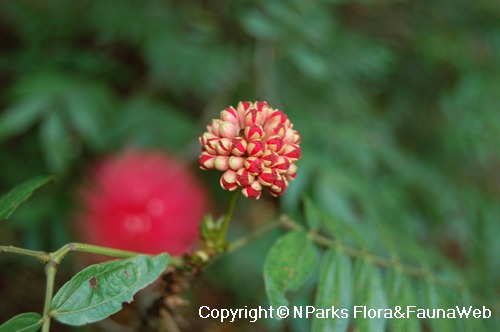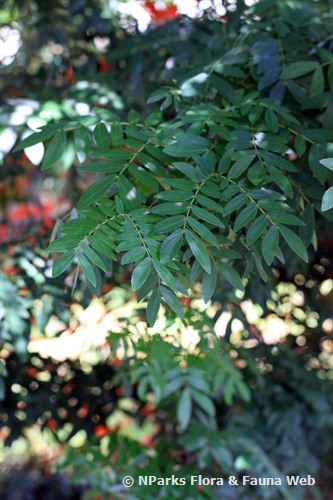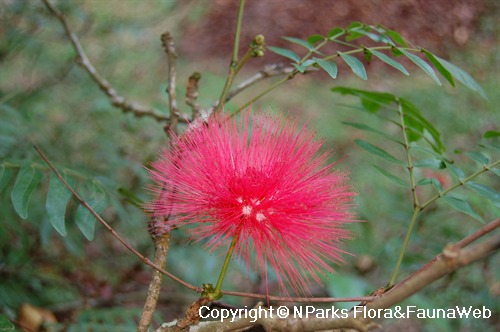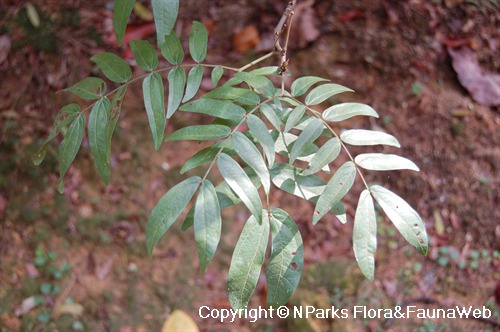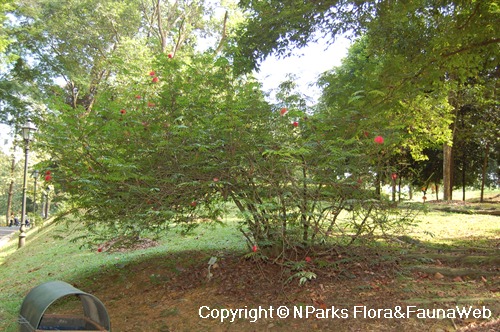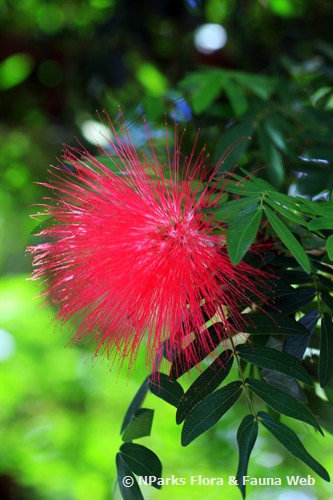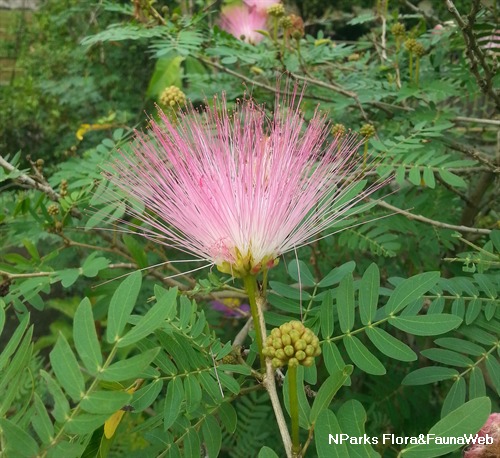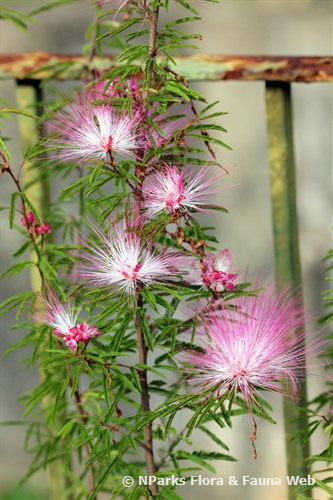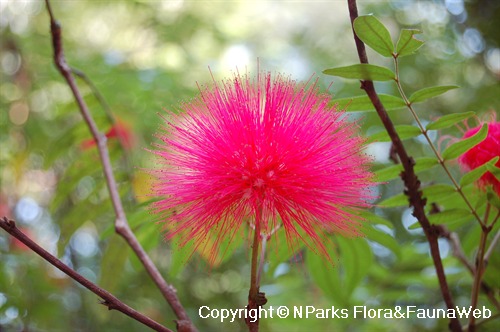
Back
Calliandra haematocephala
| Family Name: | Fabaceae (Leguminosae) |
| Synonyms: | Calliandra boliviana, Calliandra inequilatera |
| Common Name: | Red Powder Puff, Red Powderpuff, Blood-red Tassel-flower, Pink Powderpuff, Lehua Haole |
Name
Classifications and Characteristics
| Plant Division | Angiosperms (Flowering Seed Plants) |
|---|---|
| Plant Growth Form | Shrub |
| Lifespan (in Singapore) | Perennial |
| Mode of Nutrition | Autotrophic |
Biogeography
| Native Distribution | Borneo, Bolivia |
|---|---|
| Native Habitat | Terrestrial |
| Preferred Climate Zone | Tropical, Sub-Tropical / Monsoonal |
| Local Conservation Status | Non-native |
Description and Ethnobotany
| Growth Form | Shrubs or small trees up to 5 m high, usually spreading and forming a rounded crown. |
|---|---|
| Foliage | Leaves alternate, bipinnate with one pair of pinnae, petioles long, slightly swollen at the base. Basal pair of leaflets reduced, subopposite, inner leaflets smaller, terminal leaflets narrowly ovate, elliptic to obovate. |
| Flowers | Flowers red, blooming in puffs, red silky stamens. |
| Fruit | Brown pod like fruit, dry and hard. |
| Etymology | Calliandra comes from the Greek words kallos, meaning beauty and andros, meaning stamen. |
Landscaping Features
| Desirable Plant Features | Ornamental Flowers |
|---|---|
| Landscape Uses | Parks & Gardens, Small Gardens |
Plant Care and Propagation
| Light Preference | Full Sun, Semi-Shade |
|---|---|
| Water Preference | Moderate Water |
| Plant Growth Rate | Moderate |
| Rootzone Tolerance | Moist Soils, Well-Drained Soils |
| Maintenance Requirements | Low |
| Propagation Method | Seed |
Foliar
| Foliage Retention | Evergreen |
|---|---|
| Mature Foliage Colour(s) | Green |
| Foliar Type | Compound |
| Foliar Arrangement Along Stem | Alternate |
| Foliar Attachment to Stem | Petiolate |
| Foliar Shape(s) | Non-Palm Foliage |
| Foliar Venation | Pinnate / Net |
| Foliar Margin | Entire |
Floral (Angiosperm)
| Flower Colour(s) | Red |
|---|
Fruit, Seed and Spore
| Mature Fruit Colour(s) | Brown |
|---|---|
| Fruit Type | Dehiscent Dry Fruit |
Image Repository
Others
| Master ID | 472 |
|---|---|
| Species ID | 1768 |
| Flora Disclaimer | The information in this website has been compiled from reliable sources, such as reference works on medicinal plants. It is not a substitute for medical advice or treatment and NParks does not purport to provide any medical advice. Readers should always consult his/her physician before using or consuming a plant for medicinal purposes. |

